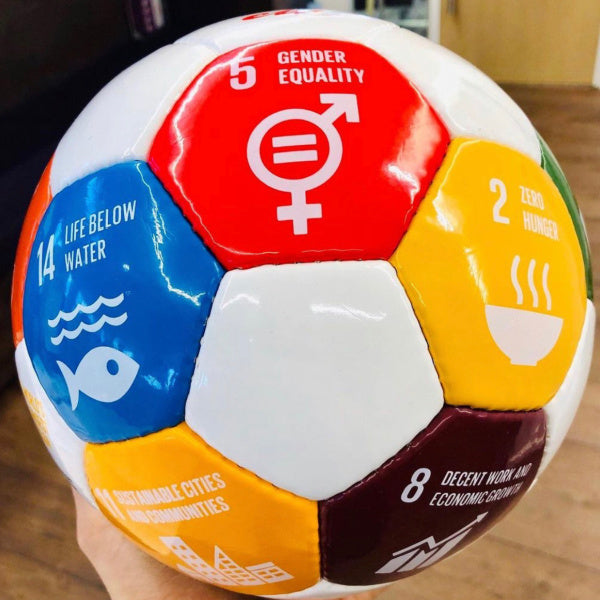Photo: Susie Petruccelli
What does poverty mean?
Literally, it means the person in it doesn’t have enough money to provide themselves or their family with the materials required to meet their basic needs. But on a metaphysical, and perhaps even a more tangible level, it involves social, economic, political, and even emotional and psychological components. Those components often add up in such a way that makes it difficult for people born into poverty, to leave it.
Let’s briefly look at the numbers, via the World Bank: almost 700 million people live on less than $2 a day, a number that is expected to rise significantly due to COVID. More than 3 billion people live on less than $2.50 a day. Half of the poor are children. About 70% of the global poor aged 15 and over have little to no education. Every year, 3.1 million children die due to poor nutrition driven by poverty. One in four children living in poverty are also living in the world’s richest countries. Climate change will likely only worsen the situation, driving an estimated 68 million to 132 million into poverty by 2030.
It’s not a completely impossible situation of course. There are thousands of examples, who, like lottery winners, keep the dream of transcendence alive for the suffering millions. LeBron James, Diego Maradona, and Cristiana Ronaldo are just a few of the star athletes who were once poor, but they made it, not just out, but into the highest echelons of society, through a combination of luck, talent, and determination. The implicit message being: if you can’t or don’t make it out, it’s on you.
A new film, Warriors of a Beautiful Game, highlights the perils of poverty, and holds out hope that there can be not just an escape hatch to wild success through raw athletic skill, but perhaps true, sustainable change that can improve the lives of many, not just a lucky handful. It doesn’t provide any easy solutions, but instead, opens a window into the mixture of uncertainty and hope of a brighter future, with hints at the paths that may help many get there.
Warriors follows Laís Araújo, a young woman from Brazil’s favelas who uses football, aka soccer, as her — and her family’s — way out of extreme poverty. But Araújo’s tale serves as a gateway to a larger conversation about young women fighting across the world for their right to play, to be free, to be more. Icons like Pelé, Neymar, Alex Morgan, Abby Wombach, Ali Krieger, Julie Foudy, and Billie Jean King also share their stories and perspective, helping to illuminate the battle for opportunity and equality for men and women from all walks of life, across all cultures and societies.

Laís Araújo. Photo: Kely Nascimento-DeLuca
We sat down with one of the filmmakers, Kely Nascimento-DeLuca, daughter of the football icon Pelé, and producer Susie Petruccelli, author of Raised a Warrior, who grew up in a sports-mad family in California and went on to play at Harvard University, to find out more about the thought-provoking documentary, their journey to creating it, and what they learned in the process. Please read on for more insight.

NEW YORK MAKERS: How did you two embark on this project together?
KELY NASCIMENTO-DELUCA: It’s a long and complicated story that could only happen in New York. My brother-in-law is a coach on the Upper West Side, and for years, he took kids and their parents to Brazil to tour professional facilities. When he got back in 2012, he told me I had to meet one of the girls he met, Laís Araújo. He was amazed at her ability to play; she played on the boys’ team, and he knew she had serious potential that would come to nothing if she stayed there. When he came back and told me her story, we put our heads together and tried to create opportunities for her, and meanwhile, she worked on learning English and getting her grades up. But she lived in a two-room home with six sisters, it was no easy task. It became clear early on that the fact that she was a girl made everything more difficult and complicated. Meanwhile, Susie lived in the same neighborhood in Long Island, and I kept hearing about her from friends. Finally, we met at a party and hit it off.
SUSIE PETRUCCELLI: I’d been writing a book for a long time about my journey through soccer, and I knew from my own personal experience that girls and women have a much different route than boys and men. Pelé was my personal hero growing up, and in fact all of my sports heroes were men. Through research and talking to other players, it began to dawn on me how different my opportunities — I was, amazingly, given the opportunity to attend either Harvard or Stanford because of soccer — would have been without Title IX. [ED. NOTE: Title IX of the Education Amendment in 1972 legally protects people from discrimination based on sex in educational programs, including athletics]. I began thinking about all of the girls around the world who were talented athletes, and who got there thanks to Title IX, and whose talent would have been wasted in different economic or cultural circumstances. And we still have so far to go in terms of the way women are paid compared to men around the world, and the way those cultures present women athletes in the first place.

Tanzania, 2018. Photo courtesy of Susie Petruccelli
KND: I knew after meeting Susie that I wanted to bring her on to the film project.
SP: When she called me after to ask if I wanted to be involved, it blew my mind. I was in, obviously!

Left to right: Susie Petruccelli, Eniola Aluko, and Kely Nascimento-DeLuca. Photo: Susie Petruccelli
NYM: What was your ultimate goal with this film?
KND: We wanted to use football, which is the most played sport in the world, and has become a microcosm of the societal issues of the country it respectively represents, and gender inequality in the sport, as a mirror to gender inequality in society. In every football-loving country today there are clear signs of a revolution brewing in women’s football that can no longer be ignored.

Zanzibar's New Generation Queens Assistant Coach Layla Said. Photo: Kely Nascimento-DeLuca
NYM: For people who don’t know anything about it, how would you describe what happens in Warriors?
SP: While Warriors chronicles the continued challenges of women’s football in an ever changing world, this documentary highlights the pure tenacity and love of the game demonstrated by its players, and the vocal and passionate fan base fueling an unstoppable movement. The creative impetus behind Warriors is to show the love, passion, and determination that women have for football by creating for the women’s game its own visual language. In Brazil, the older generation of women’s football supporters often, nostalgically, equate the women’s game with the style of men’s soccer played in the 50s and 60s. “When your father used to play...”, they always say to Kely. They see a joy for this game that has gone missing for the men in the midst of the burden and pressure of multimillion-dollar endorsement contracts and trade deals. In the spirit of the old ‘ginga’ style of play that Brazil is known for, we have created an aesthetic for women’s football that is now distinctly different yet equal in reverence to the men’s game. Through the incredible work of our award-winning DP Eric Branco, Warriors aims to convey the unmitigated joy this sport inspires in its women players and their fans the world over. Warriors travels the globe to capture this universal story of passion and perseverance. Shoot locations include Paris, France; Turino, Italy; Santos, Brazil; Zanzibar, Tanzania; Florida, and New York.

Laís Araújo in New York City. Photo: Kely Nascimento-DeLuca
NYM: How has COVID affected the project, and its mission?
KND: Today we find ourselves in the midst of a forced, global pause. Although this pause has wreaked economic, social, and emotional devastation on our collective societies it has also provided us with the rare and singular opportunity to take a closer look at injustices and severe inequities that even as well-meaning, empathetic people, we don’t often have time to dwell upon. Like race, gender inequity has a devastating and insidious, emotional and economic effect on global communities. We feel that the impact a film project like Warriors will have right now is immeasurable. Warriors is more than a film. It is part of a cultural moment. A moment challenging the history of gender inequality in football, in sports and across society. Through an integrated and sustainable social impact initiative, Warriors will seize this moment to transform the game for women and drive lasting change. The great American journalist Bill Rhoden recently wrote: “In team sports, intermission is a time to attend to injuries, make adjustments and recharge. During this forced national intermission, what adjustments will we make, how will we attend to our massive psychic injuries and how will we re-energize?”
SP: We’ve been really lucky, and Donald Rosenfeld has signed on to be our executive producer, along with Julie Foudy. So, at this point, we are editing it and set to complete that any minute. From there, we’ll be submitting it to the film festivals Sundance and Venice. What’s become clear to everyone during the pandemic is that the classic film release model doesn’t necessarily have to stand.
KND: Absolutely. We are so excited to share how far equality in terms of social and economic opportunities has come in recent years. Social media has really helped, but there’s such a gap between standard media exposure of women versus men’s sports across the world, it’s no wonder women are still paid less for playing and for sponsorship deals.
With Warriors, it’s clear that women have game. Now we have to find a way to help them play it.
Stay tuned for an official trailer.


Leave a comment